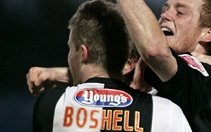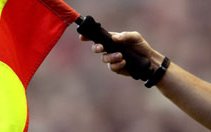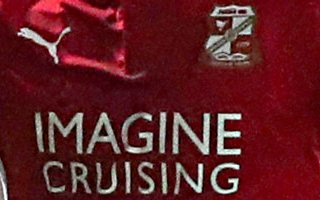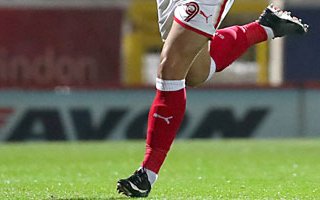Grimsby Town F.C. are an English football League Two team. The club is located at Blundell Park in Cleethorpes, the seaside town conurbation of Grimsby borough, North East Lincolnshire, on the river Humber in the north-east of England.
Despite having fallen on hard times in recent years, the club is the most successful of the four professional clubs in historic Lincolnshire, being the only one to play top-flight football. It is also the only club of the four to reach an FA Cup semi-final (in fact doing so on two occasions) and is the only one to succeed in two finals at Wembley Stadium. It has also spent more time in the English game’s second tier than any other club from Lincolnshire. However, at present, they are the second lowest-placed league club in the Humber and Lincolnshire area, above only Boston United.
Notable managers of Grimsby Town include the late Bill Shankly, who went on to guide Liverpool to great success, and Lawrie McMenemy who, after securing promotion to the then third division in 1972, moved to Southampton where he won the FA Cup in 1976.
The club was formed in 1878 after a meeting held at the Wellington Arms public house in Freeman Street. Several attendees included members of the local Worsley Cricket Club who wanted to form a football club to occupy the empty winter evenings after the cricket season had finished.
The club was originally called Grimsby Pelham, this being the family name of the Earl of Yarborough, a significant landowner in the area. The name was changed the following year to Grimsby Town. In 1880 the club purchased land at Clee Park which was to become their ground until 1889 when they relocated to Abbey Park, before moving again in 1899 to their present home, Blundell Park. The original colours were blue and white hoops, which were changed to chocolate and blue quartered shirts in 1884.
In 1888 the club first played league football, joining the newly-formed ‘Combination’. The league soon collapsed and the following year the club applied to join the Football League, an application that was refused. Instead the club joined the Football Alliance. In 1890 the club became a limited company and in 1892 finally entered the Football League, when it was expanded to two divisions. The first game was a 2-1 victory over Northwich Victoria.
The 1901/02 season saw promotion to the first division; two seasons later they were relegated and within a decade they would be a non-league side again, failing re-election in 1910 and falling to the Midland League. However they won that at the first attempt and at the subsequent re-election vote, replaced local rivals Lincoln City in the Football League.
The Inter-War Years
This was probably the most suceessful period in the club’s history as they played at the highest level. The first full season after the Great War the club was relegated to the new Third Division North. By 1929 they were however back in Division One, where they stayed (with a brief break from 1932 to 1934) until 1939, obtaining their highest-ever league position, 5th in Division One, in the 1934-35 season. In 1925 they adopted the black and white stripes as their colours.
On 25 March 1939, Wolverhampton Wanderers played Grimsby Town, in a FA Cup semi-final at Old Trafford. The attendance of 76,962 remains Old Trafford’s largest ever attendance, though it is likely to be exceeded in the near future. The Mariners lost the game 5-0 after the second choice goalkeeper George Moulson was injured early on in the match (first choice keeper George Tweedy had caught the flu days earlier). With the then rules forbidding substitutes for injuries Grimsby had to play with 10 men and an outfield player in goal. It was at this match that the squad wore numbered shirts for the first time, three months before it became official.
As well as the semi-final of 1939 the club also reached the semi-final of the FA Cup in 1936 but lost 1-0 to Arsenal.
Postwar decline
With the resumption of the Football League for the 1946-47 season after World War II the club were relegated at the end of the 1947-48 season and have never returned to this level. Much of the 1950s and 1960s were spent alternating between the Second Division and the Third Division North, later the Third Division. In 1968 they slipped into the Fourth Division for the first time. The following season the club had to apply for re-election to the league having finished second from bottom. It was in this season that the lowest-ever attendance for a Football League match at Blundell Park was ever recorded; 1,833 saw a 2-0 defeat to Brentford.
Revival during the 1970s
Three years later 22,489 people witnessed a home victory against Exeter City that saw the club promoted as Fourth Division Champions. This turnaround was credited to the appointment of Lawrie McMenemy as manager. The club stayed in Division Three until relegation in 1977 but were promoted again in 1979. A year later they finished as Third Division Champions under the stewardship of George Kerr and returned to the second tier of the English game, a level they had not been at for 16 years.
In 1976 the club saw what could be said to be its’ most prestigious visitor when the local Member of Parliament and then Foreign Secretary Anthony Crosland invited the then American Secretary of State Henry Kissinger to watch the Mariners play. The game they viewed was against Gillingham.
Back in the Second Division
The first season back (1980-81) saw the club finish 7th. Work started that year on a new £1m stand, originally called the Findus Stand (now the Carlsberg Stand) after the former Barretts Stand had been declared unsafe. In the 1983-84 season the club finished fifth in the Second Division after spending most of the latter part of the campaign in the top three promotion places. This was their highest league finish since the 1947-48 season.
Another decline and another revival
By 1988 the team were back in Division Four and the club was in extreme financial difficulties. Following the resignation of Dave Booth in 1986 (to pursue outside business interests) the club had two managers in two years (Mick Lyons and Bobby Roberts). Alan Buckley was appointed and by 1992 had led the club to two successive promotions.
The 1997 relegation
The club stayed at this level until the 1996-97 season when they were relegated, Buckley having left to manage West Bromwich Albion and replaced with Brian Laws. During his tenure Laws became famous for a changing-room altercation after a defeat at Luton with Town striker Ivano Bonetti, which left the latter with a broken cheekbone.
Back in Division One
The 1997-98 season saw the return of Alan Buckley as manager after an unsuccessful period at WBA. That season was the most successful in recent times, in which the club won the AutoWindscreens Shield final at Wembley Stadium courtesy of a golden goal from Wayne Burnett, followed four weeks later by promotion via the Second Division play-off final at the same venue. The same season saw notable victories against several clubs above them in the league structure, including (in the League Cup) Sheffield Wednesday and Leicester City (who were the holders of the cup at the time).
The club held their position back in Division One but in 2000, after a boardroom change, Buckley was dismissed despite his side occupying a credible ninth place in the table and looking decent bets for a playoff place. He was replaced by Lennie Lawrence but the subsequent collapse of ITV Digital put enormous strain on finances. Players had to be sold to cut costs and eventually the club were relegated.
Financial crisis and two relegations
Lawrence was replaced by former club captain Paul Groves as manager but as the financial problems continued and the club battled against possible administration, the club were relegated again into the basement division. Groves was sacked in 2004 and briefly replaced by Nicky Law before the appointment of Russell Slade in 2005.
The sudden collapse of ITV Digital left the club with debts of over £2m, £700,000 of which is owed to the Inland Revenue. In 2005 director John Fenty became the controlling shareholder in the club after a search for outside investors failed, and a sale of shares to the local public was poorly received. He now owns 51% of the club and has made significant loans to the club to ensure its continued operation.
In 2006 the club announced an arrangement with the Revenue which allowed the club to repay its tax liabilities in instalments. In the report for the year ending 31 May 2006 it was revealed that the club made a profit after tax of over £400,000, due mainly to cup exploits and the play-off final.
Back in the basement division
The Mariners started well in the 2005/2006 season, rising to the top of Coca-Cola League Two, and beating Derby County and Tottenham Hotspur in the League Cup (although they were finally knocked out of the cup by Newcastle United). Grimsby Town failed to gain automatic promotion into League One after conceding a last minute goal against Northampton Town, combined with a Lee Steele goal giving Leyton Orient victory at Oxford United which condemned Grimsby to the play-offs, despite being amongst the automatic promotion places for the majority of the season. The Mariners faced local rivals Lincoln City in the play-offs semi-finals, going on to win 3-1 on aggregate. They faced Cheltenham Town at The Millennium Stadium in Cardiff but, perhaps surprisingly as the bookmakers made them favourites, they lost 1-0.
Buckley returns
On 31 May, manager Russell Slade left the club after failing to agree terms on a new contract. His assistant, Graham Rodger, was promoted to replace him, but was himself dismissed by the board on 6 November 2006 after a disappointing beginning to the season, when the club released a statement saying ‘He has been a loyal servant to the club, but has become a victim of circumstances,… Graham has qualities this club needs – the shame of it is that this man deserved better.'[1]
9 November 2006 saw the return of Alan Buckley for his third stint at managing the club in the last twenty years. Generally agreed to be the club’s most successful manager he had already taken the club from a basement division position to one that became established in what is now the Championship in his first term at the club (1988-1994).
Share this article



